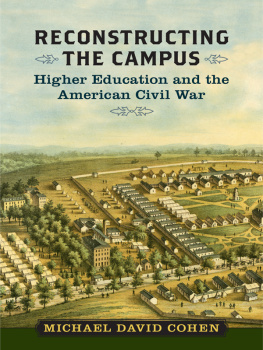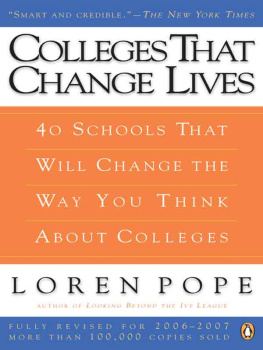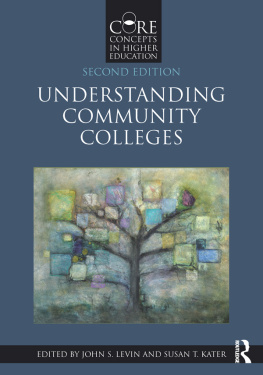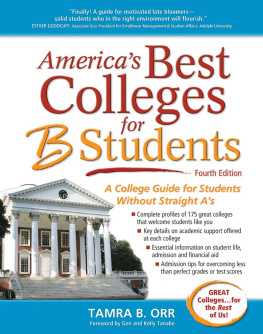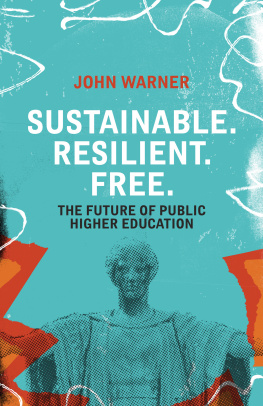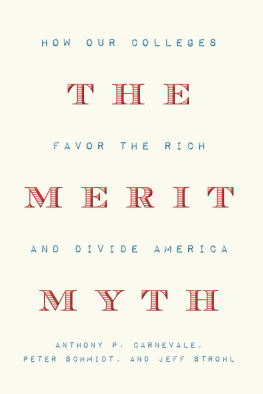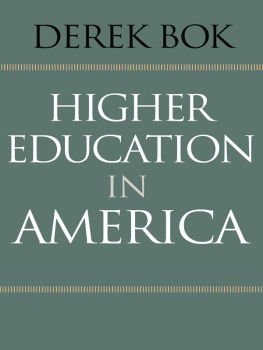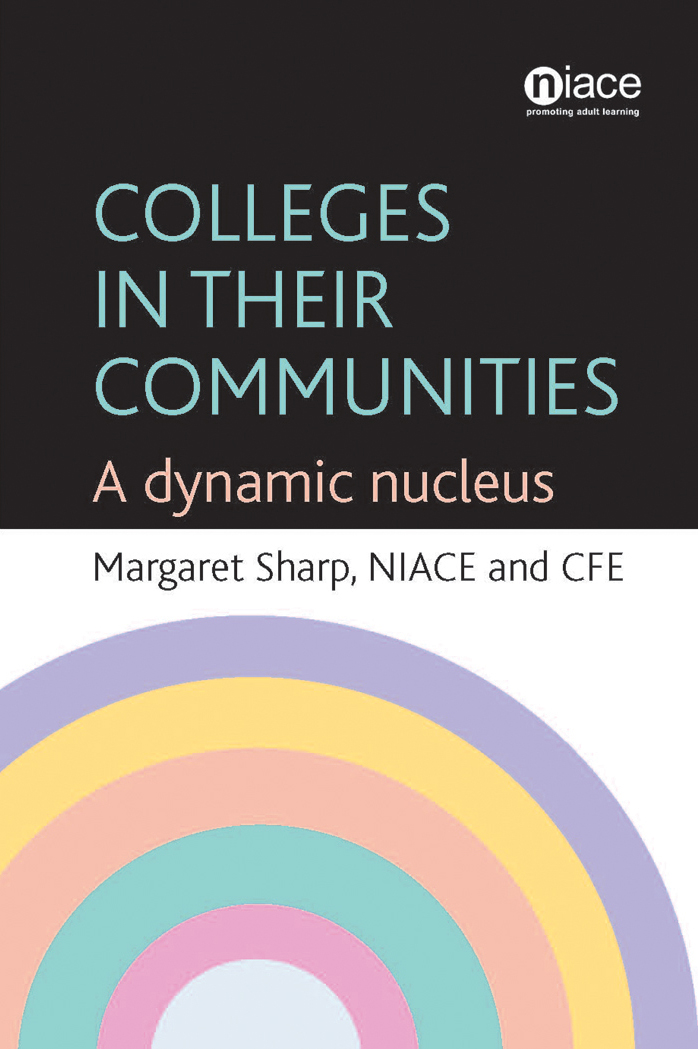COLLEGES
IN THEIR
COMMUNITIES
A dynamic nucleus
Margaret Sharp, NIACE and CFE

Published by the National Institute of Adult Continuing Education (England and Wales) on behalf of the Independent Commission on Colleges in their Communities
21 De Montfort Street
Leicester LE1 7GE
Company registration no. 2603322
Charity registration no. 1002775
NIACE 2012
All rights reserved. No reproduction, copy or transmission of this publication may be made without the written permission of the publishers, save in accordance with the provisions of the Copyright, Designs and Patents Act 1988, or under the terms of any licence permitting limited copying issued by the Copyright Licensing Agency.
NIACE, the national organisation for adult learning, has a broad remit to promote lifelong learning opportunities for adults. NIACE works to develop increased participation in education and training, particularly for those who do not have easy access because of barriers of class, gender, age, race, language and culture, learning difficulties and disabilities, or insufficient financial resources.
You can find NIACE online at www.niace.org.uk
For more information on the Colleges in Their Communities Inquiry, a joint venture between NIACE, the Association of Colleges (AoC) and the 157 Group, and the original published documents, visit the Inquiry website at: www.niace.org.uk/current-work/colleges-in-their-communities-inquiry
Cataloguing in Publication Data
A CIP record of this title is also available from the British Library
ISBN 978-1-86201-604-0
This report is also available as an e-book in the following formats:
PDF: 978-1-86201-606-7
ePub: 978-1-86201-606-4
Online: 978-1-86201-608-8
Kindle: 978-1-86201-607-1
For more information on NIACEs publications, visit: http://shop.niace.org.uk
Designed and typeset by Book Production Services, London
Printed by Page Bros, Norwich
CONTENTS
FOREWORD
The idea for a Commission of Inquiry into the role colleges play in their communities came from a meeting of NIACEs further education (FE) advisory group in early 2010. The group, which I chaired, had recently heard from Tom Schuller about the Inquiry into the Future for Lifelong Learning (IFLL). That Inquirys report, Learning Through Life, had just become an adult education bestseller in the UK and further afield, mainly attributed to the depth of the research and the alternative, all-encompassing vision for lifelong learning it presented. We were also keen to hear more about the Inquirys recommendation about colleges at the heart of a more locally accountable FE system. This vision would require colleges and government to change. But how?
With the formation of the first coalition government since before WWII, in May 2010, there seemed no better time to push forward with this agenda, given the need for innovative thinking and new ways of working. NIACE was keen to pursue this via a special Inquiry into this subject. Alan Tuckett, the CEO of NIACE at the time, had always been a strong advocate of the palaces of the people - that colleges historically were the backbone of a lifelong learning system for adults. We agreed that the Inquiry should be a joint endeavour, with two college representative organisations I had close links with (AoC and 157 Group). All three organisations would nominate commissioners, and we were fortunate that Baroness Margaret Sharp agreed to keep us in order.
Margaret did more than that. Besides hosting us in the House of Lords, she added an politically realistic incisiveness to the debate, honed by years as an HE researcher. I learnt that inquiries are a good way of influencing public policy, providing the space to look at evidence over a period of time and test ideas while the policy context develops. At best, what results is a dialogue between the sector and government. In all this, our NIACE secretariat served us well. We were also lucky that senior officials were able to attend meetings as observers and contribute to debates and hear evidence.
Colleges in Their Communities: A Dynamic Nucleus outlines a process which I feel is not peculiar to the English or UK political context and almost merits a study in itself. It also speaks to colleges and providers of adult learning overseas. I have for many years been interested in models across the world, and have been fortunate to visit many community Colleges in the USA and institutions in Canada, Australia and The Gambia. The rooting of the Community College in its community always struck me as a very enabling mission. I was concerned that following incorporation and the increasing businessisation of FE colleges that place at the heart of a community was being eroded. I was particularly keen to commission a literature review that allowed us to take into account the role of colleges and policy abroad. As our economies and the FE market become increasingly globalised, there is no better time to take a fresh look at things.
I retired as a college principal as the Inquiry was in its final stages, so it was interesting to see from a more distant perspective how effective the Inquiry was in generating a debate on the role of colleges at a crucial time. Since the report was published in November 2011 I have been impressed by how quickly government has adopted some of our central concerns and the central premise that we face a shared leadership challenge in industrialised countries wrestling with the need to invest in our nations skills and well-being at a time when government has less resource. In my current roles as non-executive chair of a government body, researcher and writer, I see clearly that the challenge is for governors, employers, local leaders, as well as college staff, to work on this together. It is, as this report concludes, a shared agenda.
Sir Geoff Hall
May 2012
PART ONE
FULL REPORT
1 Introduction from the Chair of the Commission of Inquiry
This Commission was set up in January 2011 with the purpose of investigating the role that further education colleges can and do play within their communities, and the added public value that they can bring to those communities in their role as leaders of learning. Our remit required that the Inquiry was an independent one with its membership drawn from a wide range of stakeholders. In addition to the help and advice of colleagues on the Commission, I am grateful to the many people who responded to the calls for evidence, sent in case studies and invited me to visit their colleges. I would like in particular to thank Mark Ravenhall from NIACE who has guided me through this Inquiry and helped put this report together.
Further education colleges come from the twin traditions of working mens colleges and middle class philanthropy. Over the course of almost two centuries, individuals, employers, local communities and, more recently, central government have invested in, and benefited from, the delivery of this mix of liberal studies and family learning alongside vocational education and craft skills.
Today Englands 347 colleges are present in almost every town and city, offering courses ranging from agriculture to the arts, helping some millions of young people and adults to gain and enhance their skills and education, providing pathways to better jobs and higher education. They are key players in the educational infrastructure of this country and, perhaps more importantly, a vital part of local employment and skills ecosystems.


